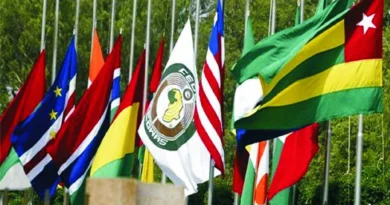ICRC Charges Global Leaders on IHL as Political Priority
From Umar Dankano, Yola
The International Committee of the Red Cross, ICRC has expressed concerns with the huge gravity of humanitarian casualties caused by ongoing armed conflicts across the globe.
Registering the disposition of the Committee (ICRC) in a press release issued by Aliyu Dawobe of the public relations Unit, Monday the President of the ICRC, Mirjina Spoljaric called for adherence to 1949 Geneva conventions treaties.
President Spoljaric said that the Geneva conventions marked its 75th years anniversary on the 12th August 2024 (1949-2024) but still rendering services of saving lives and human dignity in the world.
Spoljaric regretted that indicators have revealed that there are massive humanitarian sufferings which call for the world recommitment to the already signed convention treaties by countries.
Spoljaric urged the global leaders to make the Geneva Conventions a political priority with a sole aim of ensuring peace and harmony.
“In a divided world, the Geneva Conventions and international humanitarian law embody universal values that preserve lives and dignity.
“They are essential to preventing and protecting against the worst effects of war, and ensuring that everyone, even an enemy, is treated as a human being.
“Over the next 75 years the world needs to see robust adherence to the Geneva Conventions. Any other path is a betrayal of the commitment taken on August 12, 1949.
“The Conventions, the foundational treaties of international humanitarian law, are a remarkable success in many ways. They save lives. They prohibit torture and sexual violence. They require humane treatment of detainees. Most fundamentally, they reflect a global consensus that all wars have limits”.
Spoljaric advocated.
According to the release despite the 75 of Geneva Convention adoption by many countries,the international humanitarian law is under strain, and at times even used to justify violence. And that’s why the world must recommit to this robust, protective framework for armed conflict—one that saves lives rather than rationalizes death.
President Spoljaric observed that in 1999
the ICRC spoke of 20 active conflicts but now, we see more than 120. Given the scale, therefore proposing four means to reduce suffering:
“Parties to armed conflict must make a renewed and profound commitment to the Geneva Conventions, adhering to the letter and the spirit of the law with tangible humanitarian improvements in places affected by armed conflict must be made.
“States should ratify and uphold IHL treaties, especially the Geneva Conventions’ additional protocols.And the states must affirm that the use of new technologies of warfare – AI, cyber and information operations – strictly adhere to IHL, and develop new limits on autonomous weapon systems.
“The world has witnessed massive suffering in the armed conflicts between Israel and Gaza, and Russia and Ukraine. Violence in Ethiopia has claimed hundreds of thousands of lives. Fighting has displaced 8 million in Sudan. Protracted conflicts in the Central African Republic, Colombia, DRC, Myanmar, Syria, and Yemen all take a grinding human cost.
“I urge world leaders to negotiate. Respect for IHL during conflict can contribute to the transition to peace by removing at least some obstacles to peacemaking.
“Around the world’s war zones, the sanctity of hospitals is disregarded. Humanitarian access is impeded. Enemy fighters and civilian populations are dehumanized. Humanitarian workers – including ICRC and Red Cross Red Crescent Movement colleagues – are killed.” The ICRC decried.





